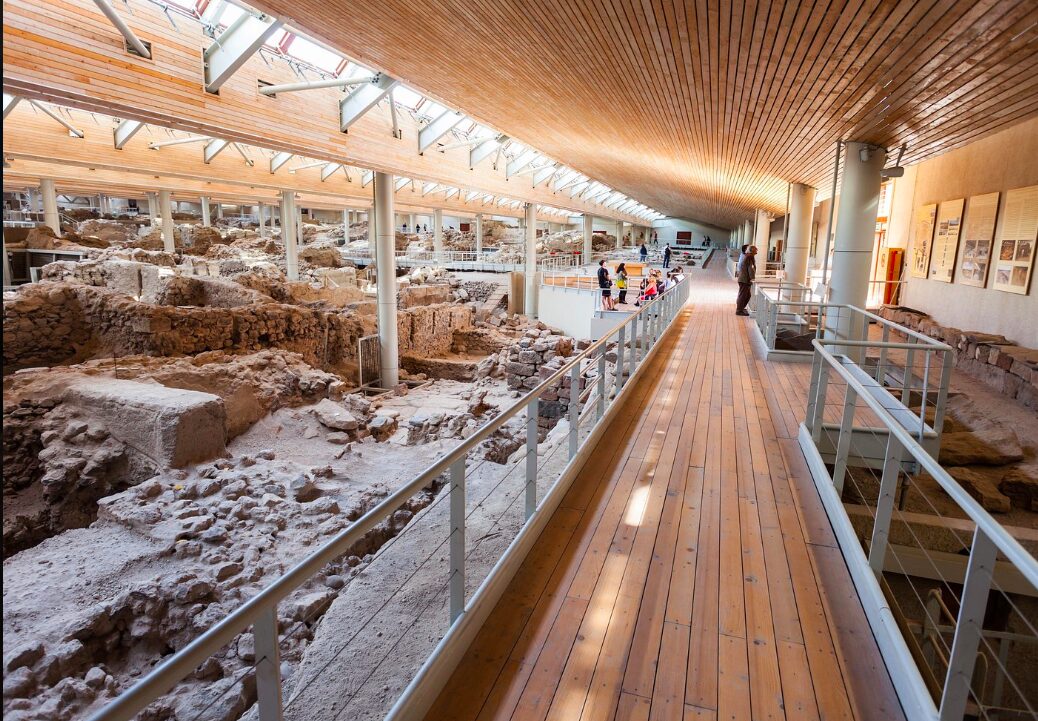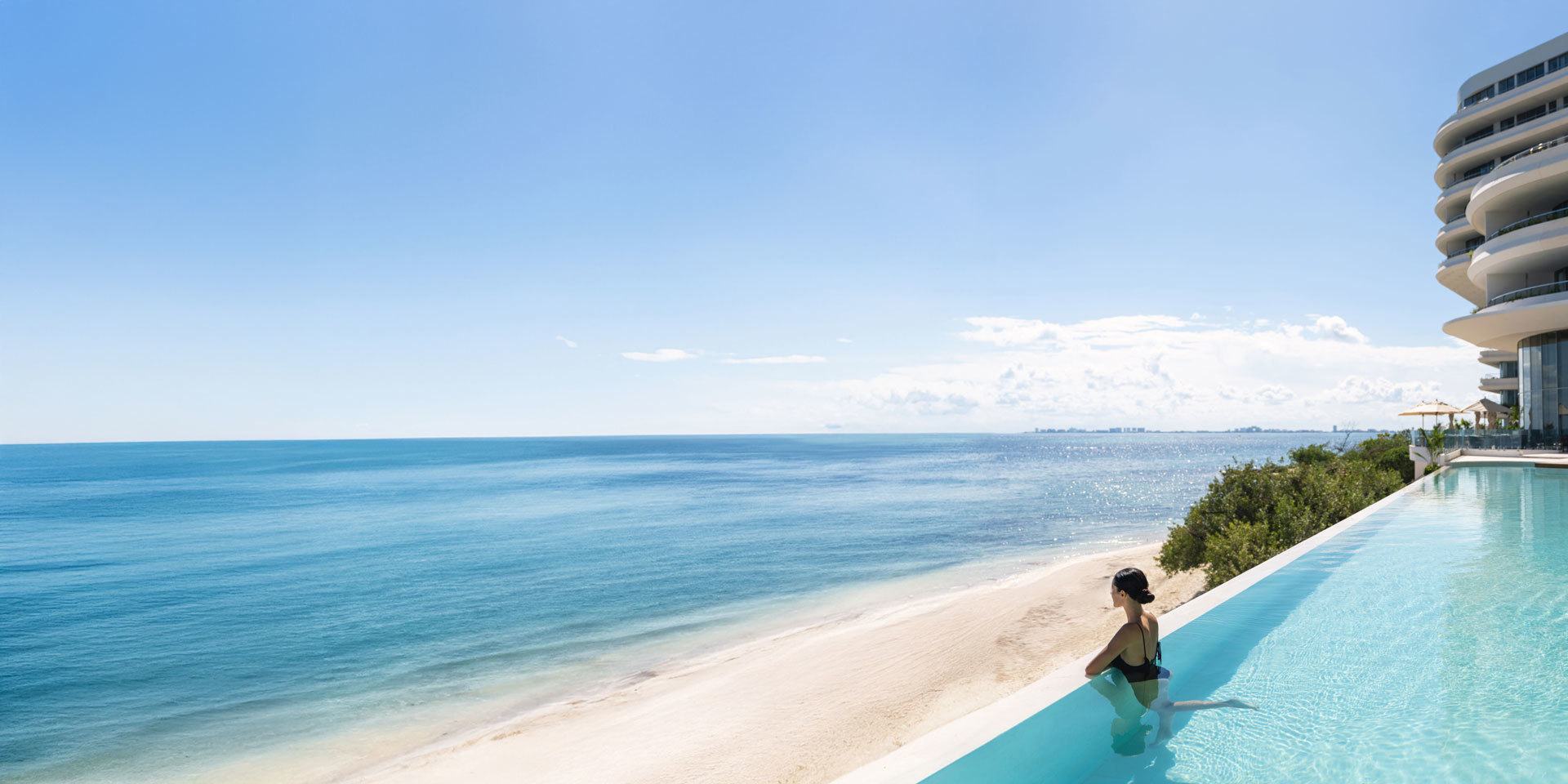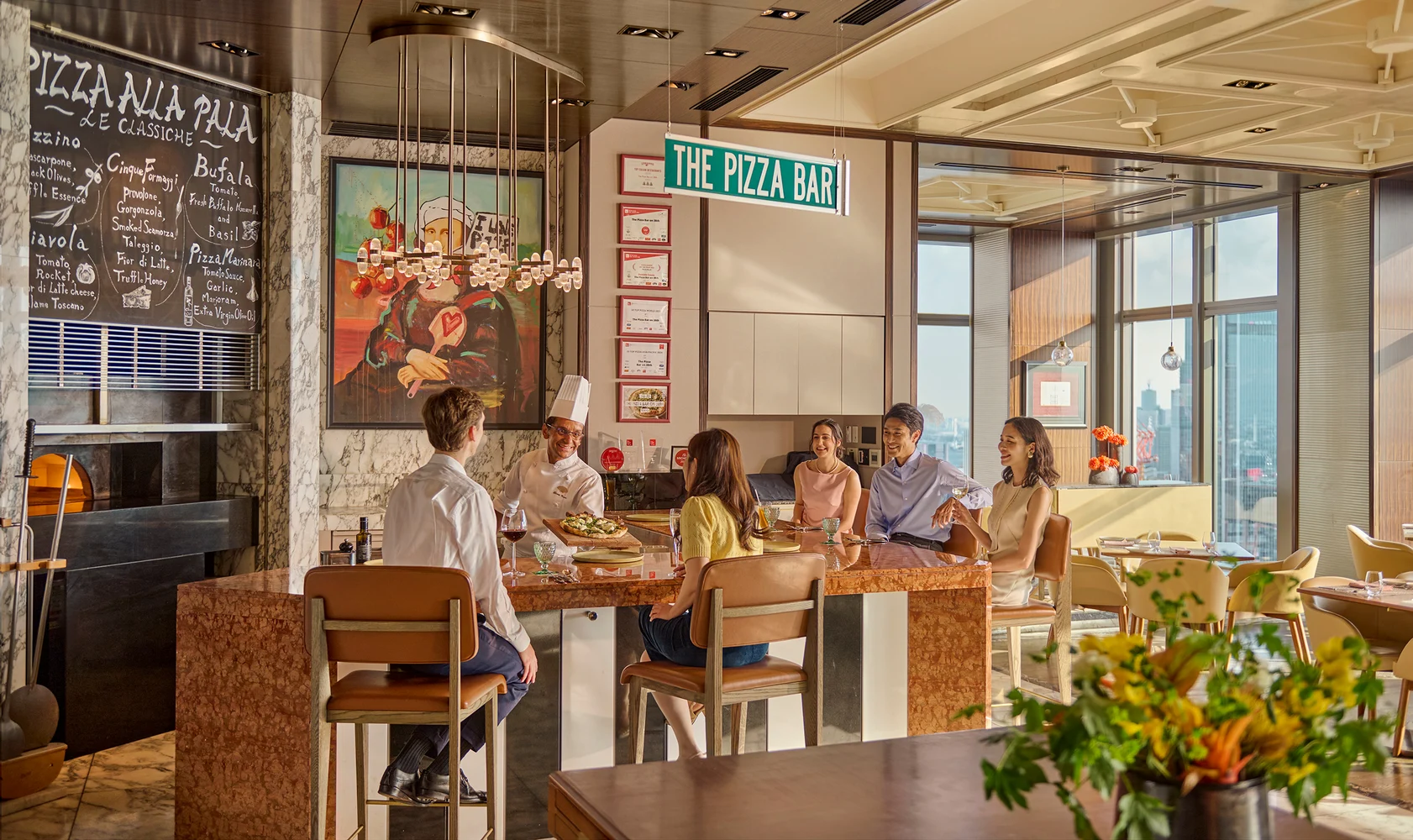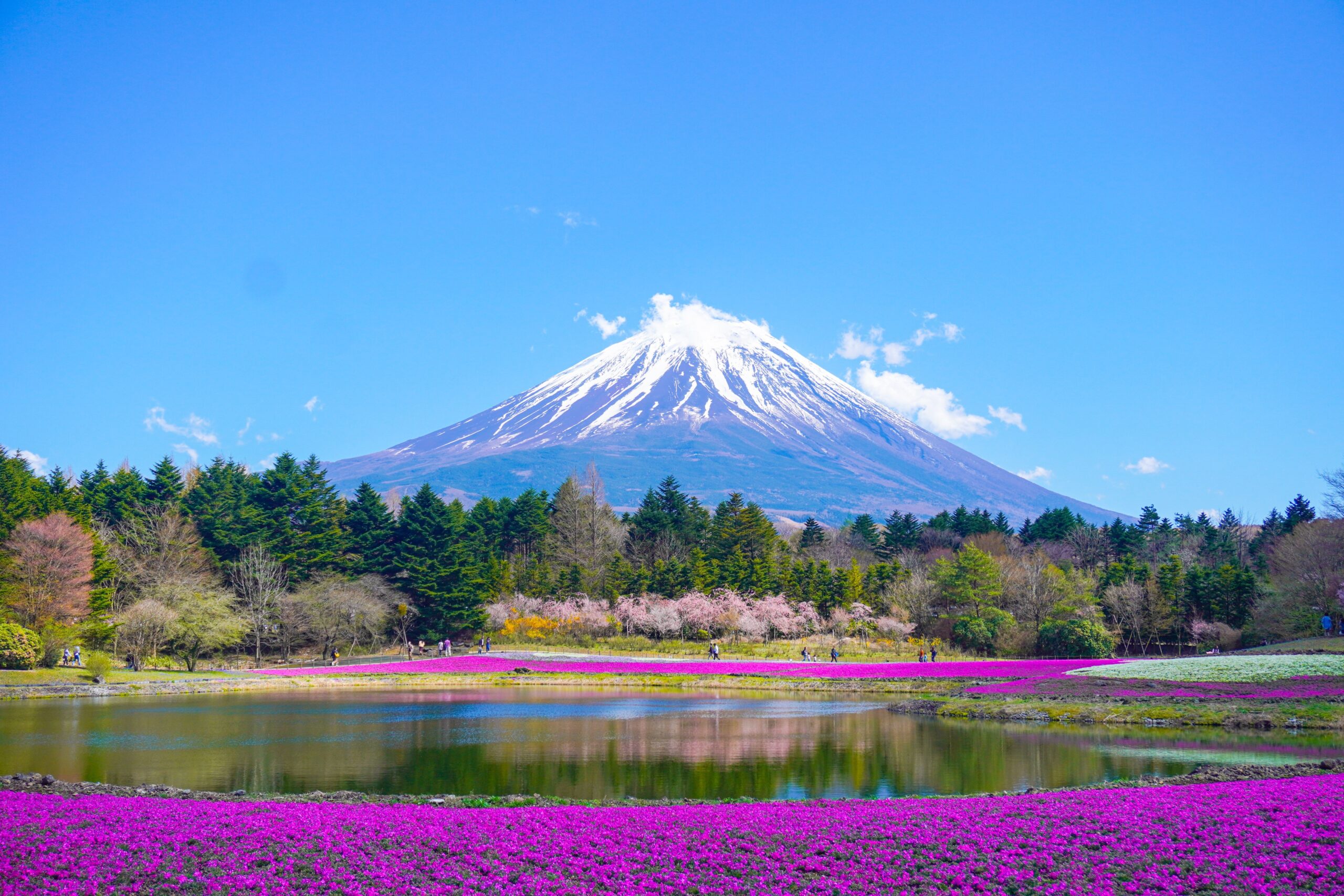Akrotiri pioneered a well-planned city with multi-storied houses, anti-odour sewage system and artistic panache
Long before modern plumbing became a hallmark of civilization, the Bronze Age inhabitants of Akrotiri on Santorini had developed top-notch sanitation systems. They would remain unrivalled for millennia.
This achievement represents just one facet of an advanced society that flourished approximately 4,000 years ago. And then it disappeared beneath volcanic ash around 1450 BCE.
Akrotiri’s rediscovery occurred through industrial serendipity. In 1860, engineers seeking volcanic material for the construction of the Suez Canal excavated on Santorini. They unearthed what would prove to be one of the Mediterranean’s most significant archaeological sites.
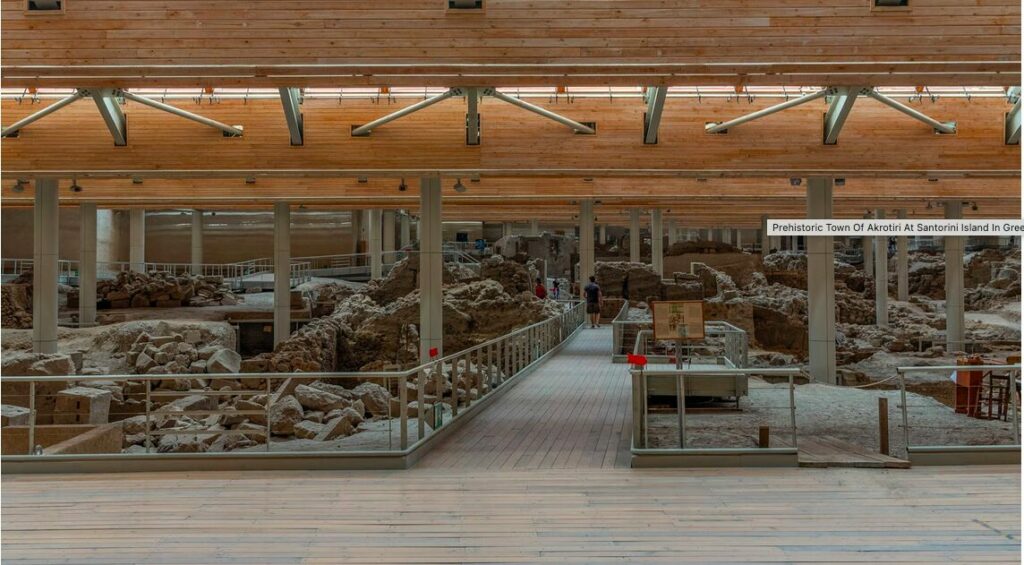
how its people survived a massive volcanic eruption.
Subsequent excavations revealed a prosperous urban centre frozen in time, kept intact by the very disaster that ended its existence.
What distinguishes Akrotiri from many contemporary Bronze Age settlements is its urban sophistication.
The city featured multi-story buildings rising three floors above street level, with complex architectural elements including light wells, interior staircases, and most surprisingly, advanced hydraulic engineering.
The inhabitants had developed a drainage system connecting toilets on multiple floors to a central sewage management infrastructure. It was an innovation that would not become standard in many European capitals until the 19th century!
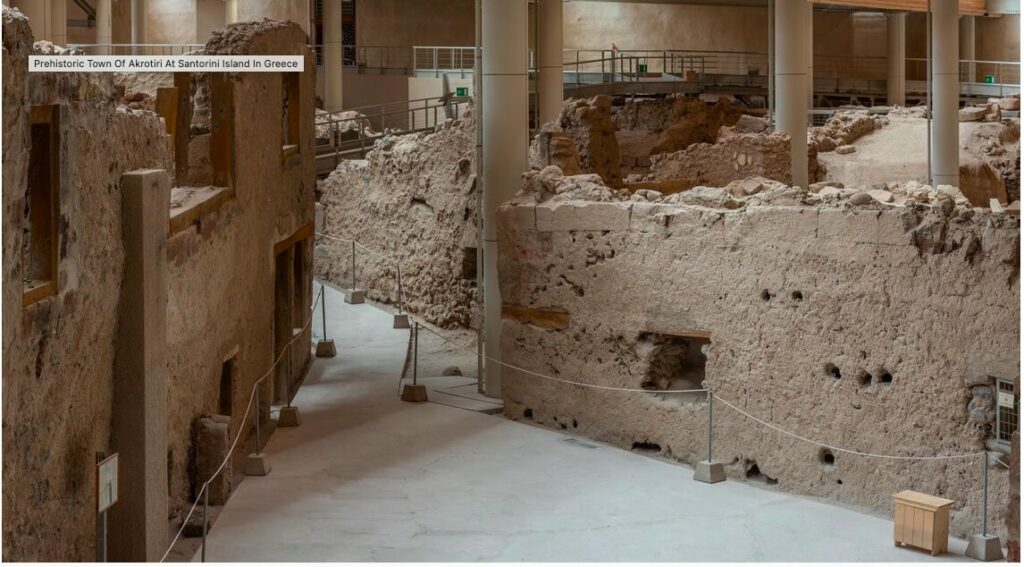
an innovation that didn’t reach Europe until the 19th century!
The preservation quality at Akrotiri surpasses even that of Pompeii.
Magnificent frescoes depicting naval processions, flowering landscapes, and elegant figures remain vibrant after four millennia. These artistic works provide insights into Cycladic culture, showing a society with refined aesthetic sensibilities and complex social organization.
Also read: A wine tour in Santorini’s atypical vineyards!
Massive pithos jars containing remnants of olive oil and preserved fish suggest a community engaged in substantial trade networks throughout the Aegean.

engaged in substantial trade networks
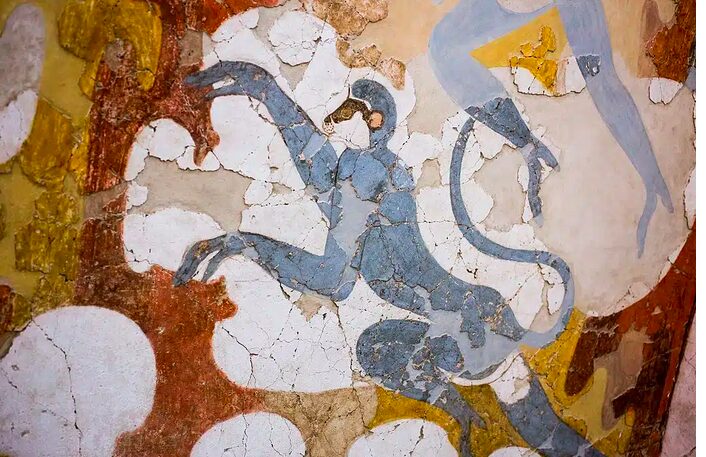
This preservation results from the circumstances of the city’s abandonment. Unlike Pompeii, where human remains tell poignant stories of sudden death, Akrotiri has yielded no bodies whatsoever! This absence presents one of archaeology’s most intriguing mysteries.
Did the inhabitants receive advance warning through earthquake precursors or increased volcanic activity? Did they successfully evacuate only to perish at sea in the tsunami that likely followed the eruption? Or did they form new communities in locations yet not found?
The Thera eruption that entombed Akrotiri ranks among the most powerful volcanic events in human history. Geological evidence suggests it released energy equivalent to hundreds of atomic bombs, ejecting volumes of ash into the atmosphere. This cataclysm may have contributed to the decline of Minoan civilization on nearby Crete. It could have also influenced climate patterns across the ancient world.

Some scholars have even proposed connections between this eruption and biblical accounts of plagues and darkness.
For visitors, Akrotiri offers a rare opportunity to walk through streets last traversed four millennia ago.
Protected now by a modern roof structure, the ruins allow intimate engagement with daily life from the dawn of European civilization.
As you depart this extraordinary site in southern Santorini, the absent population invites you to think about both human ingenuity and vulnerability, a community advanced enough to engineer multi-story plumbing yet ultimately powerless against geological forces.
In Akrotiri, we find both inspiration and warning: evidence of remarkable human achievement alongside a sobering reminder of nature’s capacity to erase our most substantial works in an instant.
———————————————————————————————————————————————————————————————-
Loveleen Arun is Founder Director of Panache World, a luxury travel design company that creates memorable journeys throughout Greece, including expertly guided experiences at archaeological wonders like Akrotiri.
Panache World’s meticulously crafted Mediterranean itineraries provide privileged access and context, changing ancient ruins into narratives that connect past civilizations with a modern understanding.

